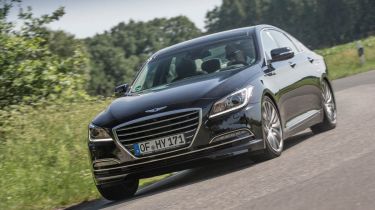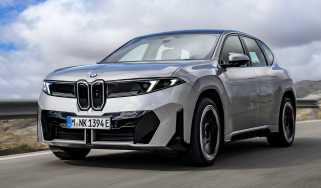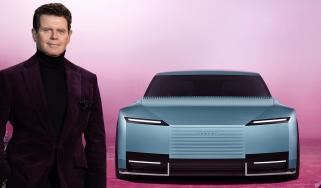Hyundai Genesis 3.8 V6 review
Can Hyundai produce a credible rival to BMW, Mercedes and Audi?

A stiff price, non-premium badge and thirsty petrol engine aren’t a good starting point for this wannabe exec, but decent quality and a hi-tech kit list do their best to offset that price. This isn’t a sporting saloon by a long chalk, but it’s relaxed, refined and pleasingly laid back. It’s not a bad first effort from Hyundai, but unless you’re really driven to be different, you’d stick with the established players for now.
As a toe in the water goes, this is a little pinky just brushing the surface. Hyundai expects to sell just a handful of its new Genesis executive saloons in the UK, but it’s said to be a showcase for the brand’s technology – all stuff that’s likely to filter through to your more regular Hyundais.
According to Hyundai Europe boss, Allan Rushforth, value will never disappear from Hyundais, so this new Genesis model comes absolutely stacked with kit. Everything from soft-close doors to a head-up display and a rather good sat-nav system is standard – there’s no need to plunder the options list, which is a good job because there isn’t one.
There’s only one engine choice, too – a 3.8-litre V6 with 311bhp. Yes, only a big, thirsty (24.4mpg average) petrol engine and no diesel, somewhat limiting the Genesis’ appeal in the UK.
Used - available now

2025 Toyota
Yaris Cross
31,591 milesAutomaticPetrol1.5L
Cash £18,619
2025 Toyota
Yaris Cross
9,865 milesAutomaticPetrol1.5L
Cash £21,465
2018 Toyota
Aygo
21,500 milesManualPetrol1.0L
Cash £9,871
2018 Toyota
C-HR
55,099 milesManualPetrol1.2L
Cash £10,899Which is something of a shame. Genesis has been around in the US and Korea for a while now, and this is it’s first foray into Europe. And it’s not a bad first effort: the car is really refined, rides nicely and on the whole is nicely built. The engine/gearbox combination works well, but the steering is positively dormant.
There are a few other foibles, too: the switchgear is numerous and randomly scattered, while some of the plastics atop the dash and doors isn’t as posh as you’d expect.
But the seats are superbly shaped and finished in top-quality leather, and there’s bags of space in the back and boot – as there should be in a car that’s slightly longer and wider than a Mercedes E-Class.
Our drive was in a four-wheel drive model, which won’t be coming to the UK – we’ll just get a rear-drive car. A Hyundai insider promised that ours will have a slightly plusher ride, too – not that there was anything wrong with the car we drove.
In spite of the many positives, the biggest problem is the badge – not the fact that the Genesis badge on the nose and steering wheel centre looks like it should be from a Hyundai budget brand rather than it’s luxury arm. But persuading buyers to drive past BMW, Mercedes, Audi and Jaguar dealers to spend what is expected to be between £45,000 and £50,000 on a Hyundai ranks as one of the toughest jobs on the planet – as Lexus and Infiniti would tell you.
At least with so few cars being sold, and every one through Hyundai’s HQ rather than its dealers, leasing rates and residual values can be managed and might not appear quite as scary as you’d expect.




